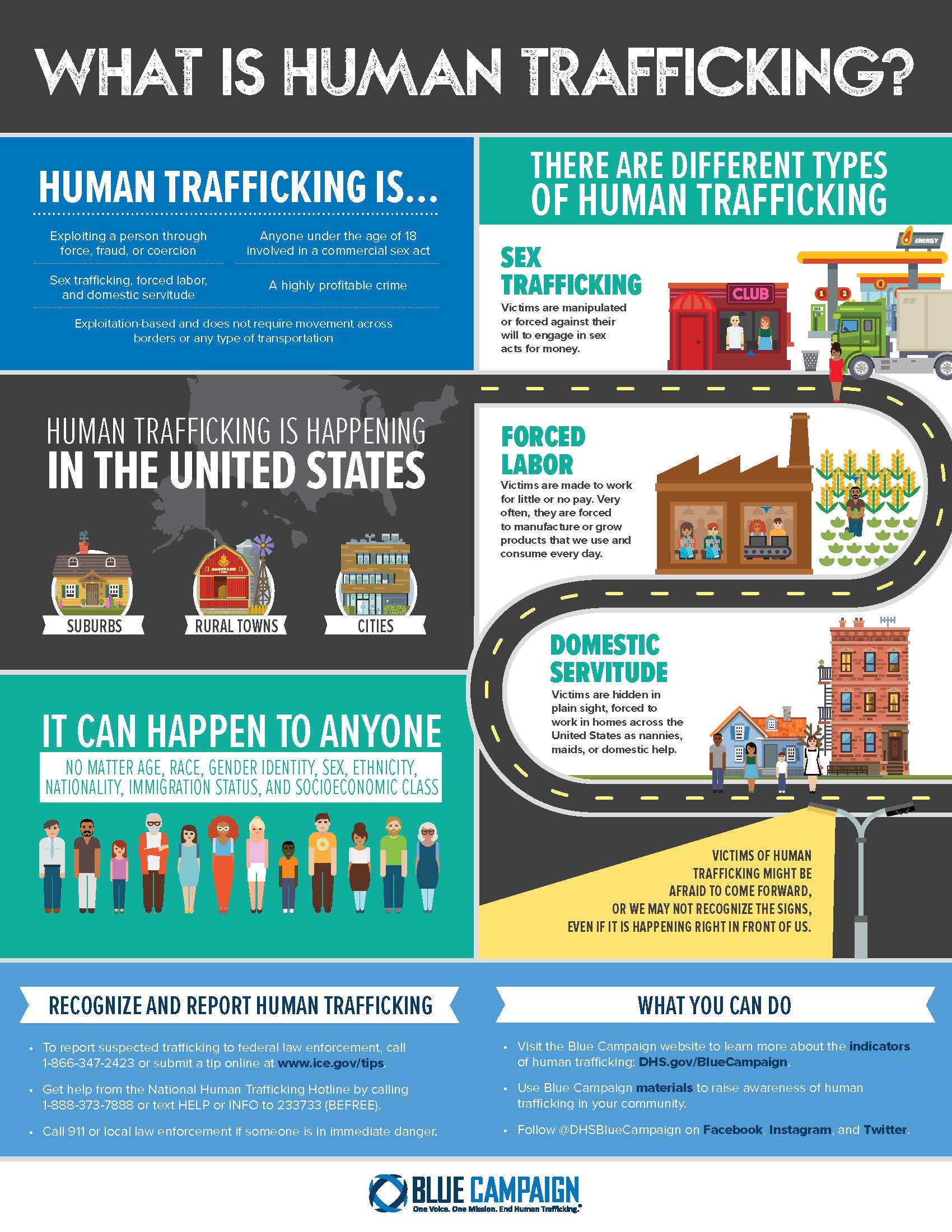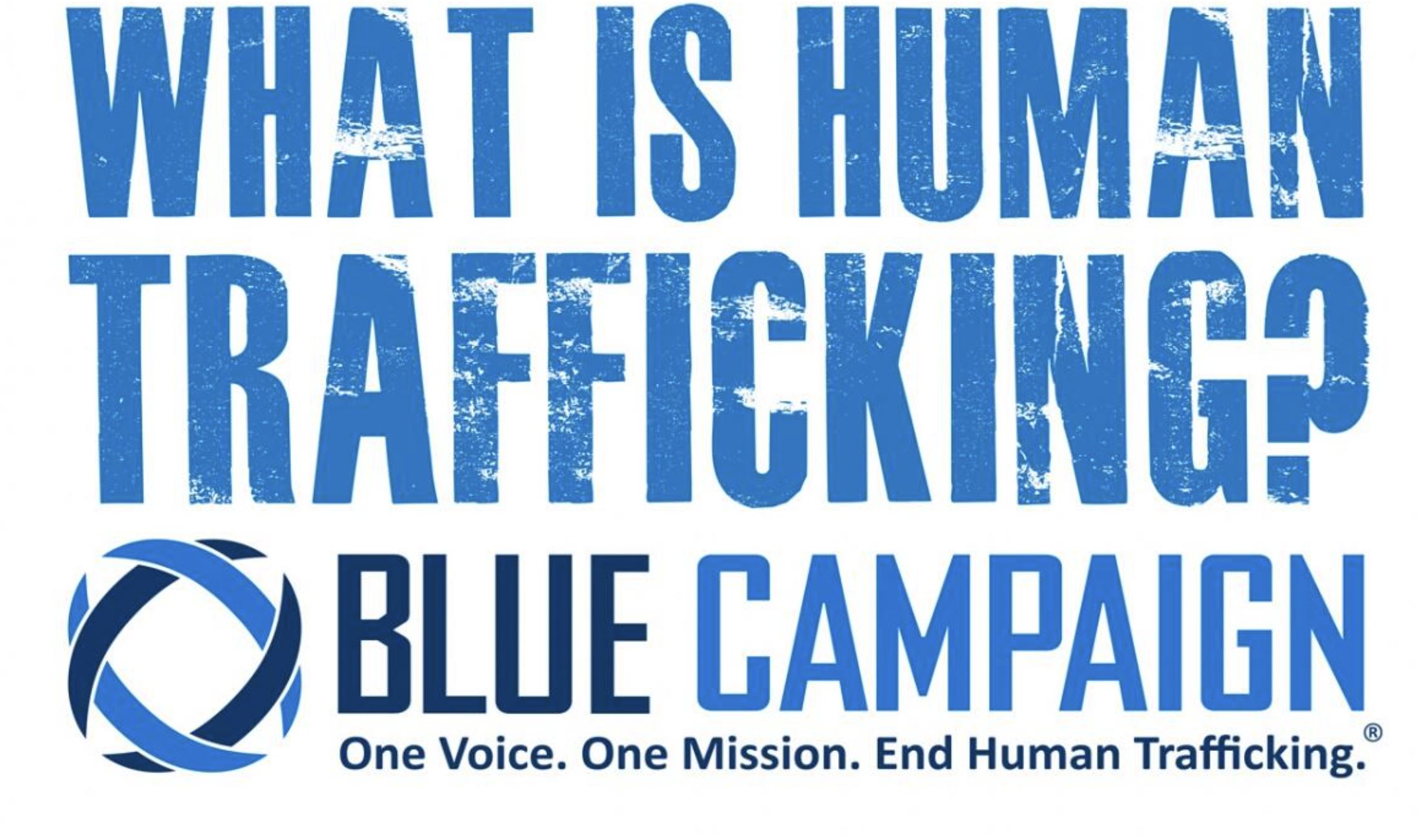This information taken from DHS.gov
Human trafficking involves the use of force, fraud, or coercion to obtain some type of labor or commercial sex act. Every year, millions of men, women, and children are trafficked worldwide – including right here in the United States. It can happen in any community and victims can be any age, race, gender, or nationality. Traffickers might use violence, manipulation, or false promises of well-paying jobs or romantic relationships to lure victims into trafficking situations.
Language barriers, fear of their traffickers, and/or fear of law enforcement frequently keep victims from seeking help, making human trafficking a hidden crime.
Traffickers use force, fraud, or coercion to lure their victims and force them into labor or commercial sexual exploitation. They look for people who are susceptible for a variety of reasons, including psychological or emotional vulnerability, economic hardship, lack of a social safety net, natural disasters, or political instability. The trauma caused by the traffickers can be so great that many may not identify themselves as victims or ask for help, even in highly public settings.
Many myths and misconceptions exist. Recognizing key indicators of human trafficking is the first step in identifying victims and can help save a life. Not all indicators listed are present in every human trafficking situation, and the presence or absence of any of the indicators is not necessarily proof of human trafficking.
The safety of the public as well as the victim is paramount. Do not attempt to confront a suspected trafficker directly or alert a victim to any suspicions. It is up to law enforcement to investigate suspected cases of human trafficking.
Click the following links to learn more about human trafficking and how you can protect yourself and others:
Forced Labor
Identify a Victim
Myths & Misconceptions
Exploitation & How to Protect Yourself

